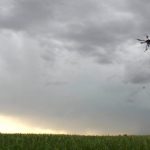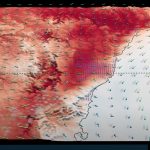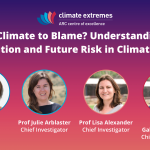 November 24, 2021 2:02 pm
Published by Jenny Rislund
November 24, 2021 2:02 pm
Published by Jenny Rislund
This paper focuses on a case study to provide a methodology for how the costs associated with an extreme weather event may be shared between citizens and envisage how such a system could look in future.
 August 2, 2021 2:54 pm
Published by Climate Extremes
August 2, 2021 2:54 pm
Published by Climate Extremes
Climate change is affecting the amount of water evaporating (from soils and surfaces) and transpiring (evaporating through plant leaves) from the land surface. Trends derived from DOLCE V3 show clear increases in ET since 1980 over the majority of the Earth’s surface.
 July 19, 2021 4:05 pm
Published by Climate Extremes
July 19, 2021 4:05 pm
Published by Climate Extremes
CLEX researchers and colleagues combined high-resolution regional climate projections with a process-based hazelnut simulation model to predict future hazelnut yield in Australia.
 July 16, 2021 10:12 am
Published by Climate Extremes
July 16, 2021 10:12 am
Published by Climate Extremes
The overarching goal of the Colorado State University Convective CLoud Outflows and UpDrafts Experiment (C3LOUD-Ex) was to enhance our understanding of deep convective storm processes and how they are represented in numerical models. Pivotal to the experiment was a novel “Flying Curtain” strategy.
 July 14, 2021 1:46 pm
Published by Climate Extremes
July 14, 2021 1:46 pm
Published by Climate Extremes
This research uses Sydney, Australia’s largest city, as a test case for our new configuration of the Weather and Research Forecasting model run at a very high resolution of 800 m with a new urban classification scheme that describes the complexity of Sydney’s built environment.
 July 2, 2021 1:49 pm
Published by Climate Extremes
July 2, 2021 1:49 pm
Published by Climate Extremes
Prof Julie Arblaster, Prof Lisa Alexander, and Assoc Prof Gab Abramowitz discuss the research around the Attribution and Risk research program. The episode explores why we can detect climate signals in some extreme weather events and not others and the implications this has for understanding how these events may change.
 May 26, 2021 11:57 am
Published by Climate Extremes
May 26, 2021 11:57 am
Published by Climate Extremes
In a recent CLEX study, published in Climatic Change, researchers discuss the choices taken at each step, which may affect the final outcome and usefulness of extreme event attribution analyses.
 March 25, 2021 12:01 pm
Published by Climate Extremes
March 25, 2021 12:01 pm
Published by Climate Extremes
This paper used statistical techniques to investigate changes in extreme climate events that currently occur, on average, only once every 20 years. These techniques are applied to data related to heat, rainfall, drought and conditions conducive to bushfires and thunderstorms from detailed climate modelling commissioned by NSW and ACT Governments.
 March 9, 2021 3:38 pm
Published by Climate Extremes
March 9, 2021 3:38 pm
Published by Climate Extremes
Maximum temperatures in Australia during spring have exceeded historic records on multiple occasions in recent years. Understanding what drives these high temperatures may lead to better forecasts of extreme heat in the future.
 March 3, 2021 3:45 pm
Published by Climate Extremes
March 3, 2021 3:45 pm
Published by Climate Extremes
The largest rivers on Earth are not on the ground, but in the sky. Our new study, published in Environmental Research Letters, showed that nine out of ten of the most expensive floods in New Zealand (2007-2017) occurred during an Atmospheric River event, and seven to all ten of the top ten most extreme rainfall events at eleven different locations occurred during Atmospheric Rivers.










